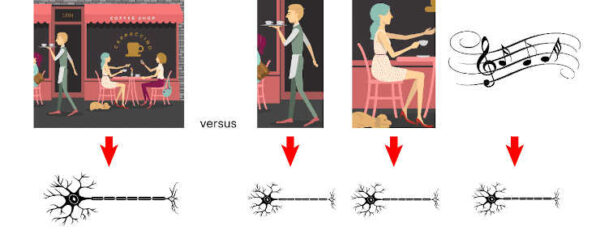The development of novel neuroprosthetic devices to assist patients with memory disorders like dementia and Alzheimer’s disease may be greatly aided by the new understanding that scientists have gained into how the brain stores episodic memories, a form of long-term, conscious memory of a prior experience.
The new study, led by the University of Glasgow in collaboration with the Universities of Birmingham and Erlangen, used special electrodes implanted directly into the brains of epilepsy patients requiring surgery to allow scientists to observe the activity of individual neurons in the hippocampus region of the brain.
The hippocampus is a difficult area to study due to its location deep within the brain, but it is critical for our memory, acting as the librarian to our brain’s memory library.
Image Narrative Cohesion
During daily life, the hippocampus assists our brain in taking pictures of experiences and storing them for later use by housing neurons that keep track of what happened when and where. The hippocampus, like a librarian, guides us to where memories are kept in the brain’s neocortex, similar to guiding us to the proper bookshelf without understanding the book’s content.

When we learn something new, the information is processed in the neocortex before being linked to specific groups of neurons in the hippocampus to form what is known as a neural assembly that represents a memory.
In this study, led by Dr. Luca Kolibius, patients were asked to form memories of pairs or triplets of images. Images were composed of animals, faces of famous people and popular places (e.g., a seagull paired with Brad Pitt and the Taj Mahal).
Patients used stories to connect the several images into one cohesive memory, and they were later asked to recall the images when given with a single image (e.g., a seagull).
Episode Specific Neurons
The research team, led by Professor Simon Hanslmayr, examined the firing rates of neurons during the memory formation and retrieval stages, identifying neurons that increased their firing rates for individual events during memory formation and recall. These neurons — which they called Episode Specific Neurons — appear to reactivate this neural assembly when we recall a memory, triggering the rest of the assembly and rekindling the memory in full.
The researchers believe the neurons discovered in this study are the “glue” that holds together all the elements of an episodic memory, i.e., what happened where and when, and thus have the potential to inform the development of neural prosthesis to help treat memory problems in patients. For example, a gadget that activates these neurons during memory retrieval could be designed to assist memory recall.
“We are incredibly excited by our findings because neurons that behave in such a way have been speculated to exist in the human hippocampus for a long time, but this is the first time we actually observed such neurons. Our next step will be to test whether stimulation of these neurons can trigger the recall of memories, which would demonstrate causality. Thereby, this research could lead to the development of devices which can help with those suffering memory-related health conditions,”
professor Hanslmayr, of the University of Glasgow, said.
“The neurons we discovered are, in essence, acting as our brain’s memory guide, helping us access and retrieve our cherished memories, like a librarian leading us to the right book on the shelf; so, to discover more about how they work is both exciting and important,”
Dr. Kolibius added.
Abstract:
The hippocampus is an essential hub for episodic memory processing. However, how human hippocampal single neurons code multi-element associations remains unknown. In particular, it is debated whether each hippocampal neuron represents an invariant element within an episode or whether single neurons bind together all the elements of a discrete episodic memory. Here we provide evidence for the latter hypothesis. Using single-neuron recordings from a total of 30 participants, we show that individual neurons, which we term episode-specific neurons, code discrete episodic memories using either a rate code or a temporal firing code. These neurons were observed exclusively in the hippocampus. Importantly, these episode-specific neurons do not reflect the coding of a particular element in the episode (that is, concept or time). Instead, they code for the conjunction of the different elements that make up the episode.
Reference:
- Kolibius, L.D., Roux, F., Parish, G. et al. Hippocampal neurons code individual episodic memories in humans. Nat Hum Behav (2023). doi” 10.1038/s41562-023-01706-6
Last Updated on January 2, 2024
